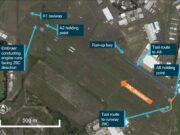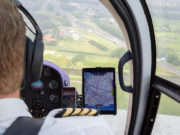
Human Factors, News, Runway Safety
‘Uncomfortable’
A veteran pilot accustomed to flying IFR expected to be directed to the usual runway…
Viewing 21 - 30 of 77 results

Human Factors, News, Runway Safety
A veteran pilot accustomed to flying IFR expected to be directed to the usual runway…
by Linda Werfelman

Poor language skills play an often-unrecognized role in aircraft accidents.
by Elizabeth Matthews

Fitness for Duty, Human Factors
Anxiety drove an A319 copilot from the cockpit during an approach to Glasgow; experts say…
by Linda Werfelman

The NTSB says a 2017 helicopter crash is among recent examples of the hazards presented…
by Linda Werfelman

Runway Safety (Conflicts), Human Factors
The BEA cited nonstandard terminology, and radio transmissions in another language, as factors in a…
by Linda Werfelman


Aviation Research, Human Factors
How a pilot speaks may help identify cases of fatigue and sleepiness, researchers say.
by Linda Werfelman

Aviation Research, Human Factors
Flight-related phobias have decreased markedly in recent years, a new survey shows.
by Linda Werfelman
EASA study finds flight time limits alone are not enough to prevent fatigue during nighttime…
by Linda Werfelman
Study: Although most Australian pilots say they’re well rested, others are on the ‘threshold’ of…
by Linda Werfelman
